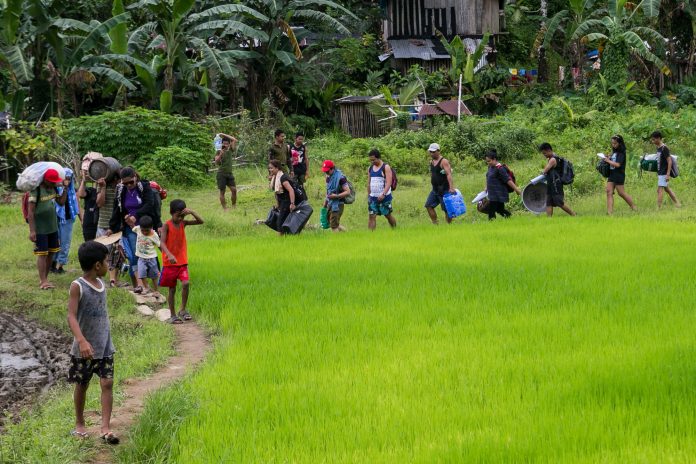“We are tribeless and all tribes are ours. We are homeless and all homes are ours. We are nameless and all names are ours…”***
One of the things that I am grateful for as someone being formed into becoming a missionary is the expansion and deepening of my notion of “home” and “family”.
Before, these are all about Mama, Papa, my two brothers, and some other blood relatives all living in our neighborhood in Laguna. When I entered the seminary, where I had new “brothers” all coming from different provinces, cultures, and faith experiences, yet are bound by a common calling to follow Jesus the Redeemer in proclaiming the “Good News to the poor”.
And eventually, delving further into the pastoral-missionary aspect of our formation, I got to encounter, integrate, and be “at home” as well with the wider People of God from the many walks of life — including the homeless and street dwellers we have sheltered in Tayuman (Manila); the Lumad and other displaced Indigenous Peoples whom we have accompanied with in seeking sanctuary and in fighting for their rights to land and self-determination; communities in rural and mountainous areas who have no easy access to the basic social and religious/spiritual services; urban poor areas in the Metro who are threatened by the news of demolitions or extrajudicial killings.
During those experiences, I felt the warmth of being welcomed into their homes, communities, and most especially into their lives as they shared with us not only the simple things that they have, but their stories and prayers of joy, worry, and defiant hope: That a bigger “Family” — with God as Father/Mother and people in solidarity as their “brothers and sisters” — is always there with and for them as they struggle for a meaningful life of human dignity.
Such, perhaps, is the radically inclusive and liberating perspective Jesus wants his disciples to bring as they are being sent by him on a mission: To go beyond blood relations and comfort zones. To welcome and embrace, and “be welcomed and embraced” by others, especially those in the social and existential peripheries of today. To recognize the Divine that resides, moves with/in, and connects us with one another.
This liberating essence is etched in the lives of the many modern-day prophets like Elijah and Elisha — the human rights advocates, environmentalists, community and sectoral leaders — who for their dedication to the truth are being chased and hunted down by forces of the status quo, seeking sanctuary into the homes and lives, especially of the common people. This also includes today’s “little ones” who are being deprived not only of a cup of water but of their dreams to live in a society of justice and peace.
And such radical calls to a life of mission, to a deeper sense of “Home” and “Family” with/in God and the People, call one to be ready (as the Second Reading puts it) to “die, be buried, and be raised” with Christ that is very much alive and “at home” with/in them. With God who became Flesh and dwelt with/in all People and Creation.
As the poet crafts his words into poems so does the missionary serves the people of God. The mission is home, the people our brothers and sisters. As God-With-Us dwells amongst the people’s hearts, so does the missionary’s heart dwells in the hearts of the people served. And if we choose the road less traveled, the missionary life becomes God’s indwelling, God’s in loving, God’s in becoming…
“The road less traveled by we’ve taken- And that has made all the difference: The barefoot army of the wilderness We all should be in time. Awakened, the masses are Messiah. Here among workers and peasants, our lost generation has found its true, its only home.”***
Gospel reflection of Luke Gealogo, postulant of the Congregation of the Most Holy Redeemer or the Redemptorists. 13th Sunday of Ordinary Time. 2 Kgs 4:8-11, 14-16a, Ps 89:2-3, 16-17, 18-19, Rom 6:3-4, 8-11, Mt 10:37-42
Balik-Tanaw is a group blog of the Promotion of Church People’s Response (PCPR). The Lectionary Gospel reflection is an invitation for meditation, contemplation, and action.
***Excerpts are taken from Open Letters to Filipino Artists by Emmanuel Lacaba — poet, freedom fighter, and martyr.









